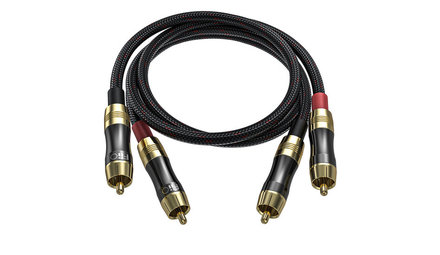

- 6500+ reviews score 9.4 average
- Free shipments over 50 euro in The Netherlands and Belgium
- Shipment in the EU
IsoAcoustics OREA
Provides extraordinary levels of isolation for high fidelity audio components and turntables.
OREA Series: Eliminates parasitic vibrations and provides greater sound clarity and focus. The OREA’s are ideal for electronic components including Amplifiers, DAC’s, CD Players, Speakers, and Turntables. Made of machined stainless steel, these isolators have a low-profile design to minimize any increase in height.
Each OREA model is designed with a different weight capacity. They each have a coloured ring on the bottom isolator that denotes the model and weight capacity. The OREA series are packaged individually to allow greater flexibility when determining the number of units to use. We recommend a minimum of 3 units under each component, depending on weight.
Greater sound clarity
The upper flange of the OREA’s are designed to provide a suction cup like effect and adhere to the underside of the component, while the lower flange adheres to the supporting surface. All the energy is managed within the core of the OREA’s, which are tuned to work within specific weight ranges. This results in greater sound clarity and a more open soundstage providing authentic, three-dimensional sound.
Works with or without feet
The existing feet on an audio component may connect well and fit nicely around the perimeter of the OREA isolator. Alternatively, you may get better performance by either removing the feet entirely or placing the OREA’s beside the existing feet to have them connect directly to the chassis or base of the component.
Weight capacity
The OREA’s are designed to be used in multiples to match the weight of the component or speaker. The total weight capacity is calculated as follows:
Total Weight Capacity = [Weight cap. per isolator] x [Qty of Isolators]
It is common to use 3 or 4 OREA isolators for each component or speaker, but keep in mind that it is most important to stay within the weight capacity of the OREA isolator.
The weight distribution of the component can also be taken into account. If for example the component is heaviest at the back, then it is common to use 3 isolators with 2 positioned at the back corners and 1 positioned front/center.
- Homepage
- Specials
- Streaming Audio
- Headphones
- Sound
- Vision
- Network
- Storage
- Smart Home
- Cables & Accessories
- Top 10
My account
New customer?
- Create an account to check your orders
- Make your shop experience better and faster
- Save your cart and save products to your wishlist






















